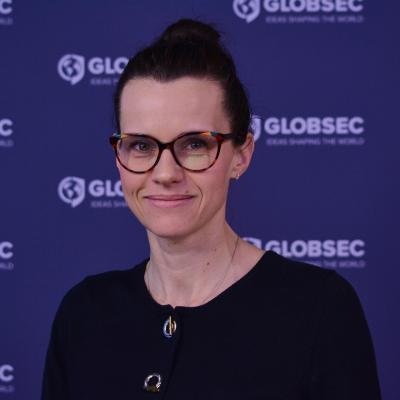Don’t forget about Europe’s Northern Partners

In designing the European security architecture, how can Norwegian and EU priorities in defence and security be prudently squared against one another to ensure that both sides mutually benefit from the partnership, ask Kinga Brudzinska and Lucia Rybnikárová.
Kinga Brudzinska is GLOBSEC’s Policy Institute’s Programme Director, Future of Europe and Lucia Rybnikárová is Project Coordinator.
Although Norway has never been part of the EU, it is essentially the most integrated non-EU country. The cornerstone of these relations is the European Economic Area Agreement, which grants Norway access to the single market, governed by its rules, in exchange for billions of euros in grants.
Even though the formal political dialogue in the EU common security and defence policy (CSDP) is limited to biannual consultations on the margins of EEA Council meetings, Norway participates in ad hoc meetings with the EU´s High Representative for Foreign Affairs and Security Policy and at the expert level with the European External Action Service.
Within the EU CSDP, Norway is involved in numerous forms of military and civilian cooperation with the EU, regulated in a framework established in 2004.
Norway in cooperation with France, for example, deployed a team, under the European Civil Protection Pool, to provide medical assistance during a major measles outbreak in Samoa last year.
Oslo has, moreover, backed EU efforts to preserve the Iran nuclear deal (JCPoA) by joining INSTEX, a financial instrument aimed at facilitating a workaround of US extra-territorial sanctions through non-USD and non-SWIFT transactions between European and Iranian companies.
Norway was also the first country invited to enter into a cooperation agreement with the European Defence Agency (EDA) in 2006. The country, furthermore, has been provided with an open door to participate in the European Defence Fund (EDF), on which the Council reached a provisional political agreement with European Parliament last week, and in the Permanent Structured Cooperation (PESCO) projects, an accord of which was brokered recently by the German EU presidency.
EDF will support collaborative measures and cross-border cooperation throughout the EU, at each stage of the industrial process related to defence products and technologies. PESCO projects, meanwhile, are Member State-driven initiatives aimed at the joint development of military capabilities.
What is interesting is that the Norwegian model comes closest to the arrangement that could be agreed between the EU and the UK in the area of CSDP.
From a Norwegian perspective, there is a strong incentive to avoid any Brexit side effect that would weaken British cooperation with the EU in CSDP, with Oslo ardent in their belief that it is in the common interest of all to maintain the UK as a key player in this area.
Norway, however, is not a part in negotiations between London and Brussels and the country has limited influence over CSDP decision-making.
The government, nonetheless, has a legitimate interest in the outcome and would like to keep a close dialogue with the EU on the state of play and at the same time shape constructive cooperation with the UK bilaterally.
Even though the EEA Agreement indeed granted Norway the right to retain control over key parts of its economy, it obliged the country to follow a large proportion of EU policies over which it does not have any influence as a non-EU-member.
This exclusion comes at a price.
There is a growing dissatisfaction in Oslo over new rules coming from the EU. As Norway heads into new elections in 2021, Euroscepticism is on the rise.
Opinion polls indicate that support for the Center Party – the most Eurosceptic party in the country – is growing.
The party has campaigned on its dissatisfaction with the current deal with the EU, lambasting it as a “bad deal”, and advocated for a new one instead. The political group is also pushing for a hard cut in the grant sums that Norway pays to Brussels, €2.7 billion in 2014-2021.
The current prime minister, however, has argued that Norway should not seek to renegotiate the deal with the EU, referencing Britain´s difficulties in negotiating its departure from the EU. A sizeable majority of Norwegian lawmakers are also against negotiating a new deal with the EU.
To avoid losing interest from key partners, the EU should continue to engage them in joint projects, as it has done with EDF and PESCO.
The EU could also reconsider the possibility of creating a differentiated typology for non-EU country partners, following the example of the OECD. This would mean developing different forms of country-specific cooperation, namely ‘key partners’ and ‘country programmes’.
Norway, for example, maintains a fervent interest in continued involvement in CSDP missions and operations, though they believe that this participation could be optimized through differentiation between various partner countries.
Particularly in the case of Norway, there has been a long-standing endeavour to persuade the EU that closer involvement, decision-shaping, and information sharing would make participation in future CSDP operations more attractive.
The question, therefore, remains open on the potential for Norwegian contribution within future CSDP missions and operations.
Given the reluctance of EU Member States to deploy robust missions, particularly in the EU framework, training and defence capacity building missions, broadly speaking, will remain central activities for CSDP missions.
Norway is already a proven contributor to international peacekeeping and would always be welcome to participate in EU external operations where there is always a need for skilled and trained military personnel.
Maritime training activities indeed are another area where cooperation could be conducive.
With the Mediterranean becoming a prime target for future European defence orientation, the know-how of a maritime nation like Norway could be seen in a favourable light as an invaluable contribution.
This article was originally published on EURACTIV website on 21 December 2020

Associate Fellow, Centre for Global Europe